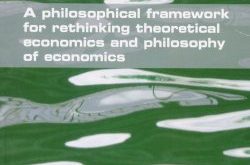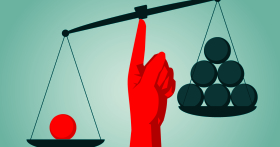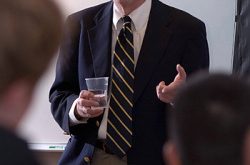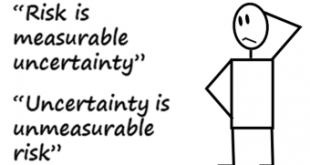On testing in a non-repetitive world The incorporation of new information makes sense only if the future is to be similar to the past. Any kind of empirical test, whatever form it adopts, will not make sense, however, if the world is uncertain because in such a world induction does not work. Past experience is not a useful guide to guess the future in these conditions (it only serves when the future, somehow, is already implicit in the present) … I believe...
Read More »Var tog jämlikheten vägen?
Var tog jämlikheten vägen? Nya data från SCB visar att inkomstskillnaderna i Sverige har fortsatt öka. Gini-koefficienten som år 2005 låg på 0,27 har ökat till 0.32 år 2016. Det är den högsta noteringen sedan mätningarna startade. Även andelen personer med “låg ekonomisk standard” har stigit från 10 procent år 2005 till 14 procent år 2016. Idag har de 10 procent av befolkningen som har högst inkomster lika stor andel av den totala disponibla inkomsten som...
Read More »That Don’t Impress Me Much
That Don’t Impress Me Much [embedded content] Advertisements
Read More »The biggest trouble with modern macroeconomics
The biggest trouble with modern macroeconomics The trouble is not so much that macroeconomists say things that are inconsistent with the facts. The real trouble is that other economists do not care that the macroeconomists do not care about the facts. An indifferent tolerance of obvious error is even more corrosive to science than committed advocacy of error. Paul Romer New-Classical-Real-Business-Cycles-DSGE-New-Keynesian microfounded macromodels try to...
Read More »Keynes — en sällsynt fågel
Keynes — en sällsynt fågel Alfred Marshall skrev en gång att “bra ekonomer är sällsynta fåglar.” Det stämmer verkligen. En av dessa sällsynta fåglar var definitivt John Maynard Keynes. Och nu har den norske ekonomiprofessorn Björn-Ivar Davidsen skrivit en bok om denne sällsynt kompetente ekonom, filosof, statstjänsteman, spekulant, utopist, universitetsmecenat, konstsamlare, med mera, med mera. I boken får vi följa med på en resa i Keynes’ biografiska...
Read More »Vingar
[embedded content] Advertisements
Read More »Models and economics
Economics is a science of thinking in terms of models joined to the art of choosing models which are relevant to the contemporary world. It is compelled to be this, because, unlike the typical natural science, the material to which it is applied is, in too many respects, not homogeneous through time. The object of a model is to segregate the semi-permanent or relatively constant factors from those which are transitory or fluctuating so as to develop a logical way of thinking...
Read More »Hit and run
[embedded content] Advertisements
Read More »Keeping the dream alive
Keeping the dream alive For me, the study of asymmetric information was a very first step toward the realization of a dream. That dream was the development of a behavioral macroeconomics in the original spirit of Keynes’ General Theory. Macroeconomics would then no longer suffer from the ad hockery of the neoclassical synthesis, which had over-ridden the emphasis in The General Theory on the role of psychological and sociological factors, such as cognitive...
Read More »Keynes’ core insight
But these more recent writers like their predecessors were still dealing with a system in which the amount of the factors employed was given and the other relevant facts were known more or less for certain … At any given time facts and expectations were assumed to be given in a definite and calculable form … The calculus of probability, tho mention of it was kept in the background, was supposed to be capable of reducing uncertainty to the same calculable status as that of...
Read More » Lars P. Syll
Lars P. Syll







